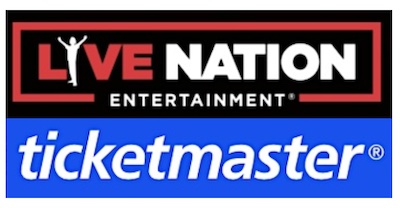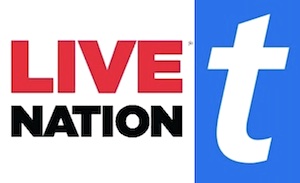Justice Dept. Coming For Live Nation


“It is time to break up Live Nation-Ticketmaster,” said Attorney General Merrick Garland, in a statement announcing the suit, which was filed in the U.S. District Court for the Southern District of New York. The suit asks the court to order “the divestiture of, at minimum, Ticketmaster,” and to prevent Live Nation from engaging in anticompetitive practices.
According to the Justice Department, Live Nation controls around 60 percent of concert promotions at major venues around the United States and roughly 80 percent of primary ticketing at major concert venues.
The New York Times reports that in the lawsuit, which is joined by 29 states and the District of Columbia, the government accuses Live Nation of dominating the industry by locking venues into exclusive ticketing contracts, pressuring artists to use its services and threatening its rivals with financial retribution. Those tactics, the government argues, have resulted in higher ticket prices for consumers and have stifled innovation and competition throughout the industry.
Lawmakers, fans and competitors have accused the company of engaging in practices that harm rivals and drive up ticket prices and fees. At a congressional hearing early last year, prompted by a Taylor Swift tour presale on Ticketmaster that left millions of fans unable to buy tickets, senators from both parties called Live Nation a monopoly. In its complaint, the Justice Department refers to the many add-on fees as “essentially a ‘Ticketmaster Tax’ that ultimately raise the price fans pay.”
In response to the suit, Live Nation denied that it was a monopoly and said that breaking it up would not result in lower ticket prices or fees, instead claiming that artists and sports teams are primarily responsible for setting ticket prices, and other business partners, like venues, take the lion’s share of surcharges.
In a statement, Dan Wall, Live Nation EVP of Corporate and Regulatory Affairs, said the government’s case “ignores everything that is actually responsible for higher ticket prices, from increasing production costs to artist popularity, to 24/7 online ticket scalping that reveals the public’s willingness to pay far more than primary tickets cost.” The company also says its market share for ticketing has decreased in the recent years as it competes with rivals to win business.








